The Semrush AI SEO Toolkit helps you uncover new content opportunities by analyzing how your brand appears across AI platforms such as ChatGPT, Gemini, Perplexity, and SearchGPT.
One of the most powerful ways to do this is through the Questions report. This report reveals the real questions people ask AI platforms about your brand, products, and industry. Questions are grouped by topic and intent, so you can see exactly what your audience wants to know.
Exploring these questions gives you a direct source of high-intent content ideas. By creating content that answers them, you can fill gaps in your strategy and increase your chances of being cited in AI responses.
In this guide, you’ll learn how to use this tool, step by step.
Step 1: Launch and Set Up the Semrush AI SEO Toolkit
Sign in to your Semrush account and select AI SEO from the left-hand navigation bar.
Alternatively, you can click on this link.
Enter your website URL. Then, click Analyze to set up a new project.
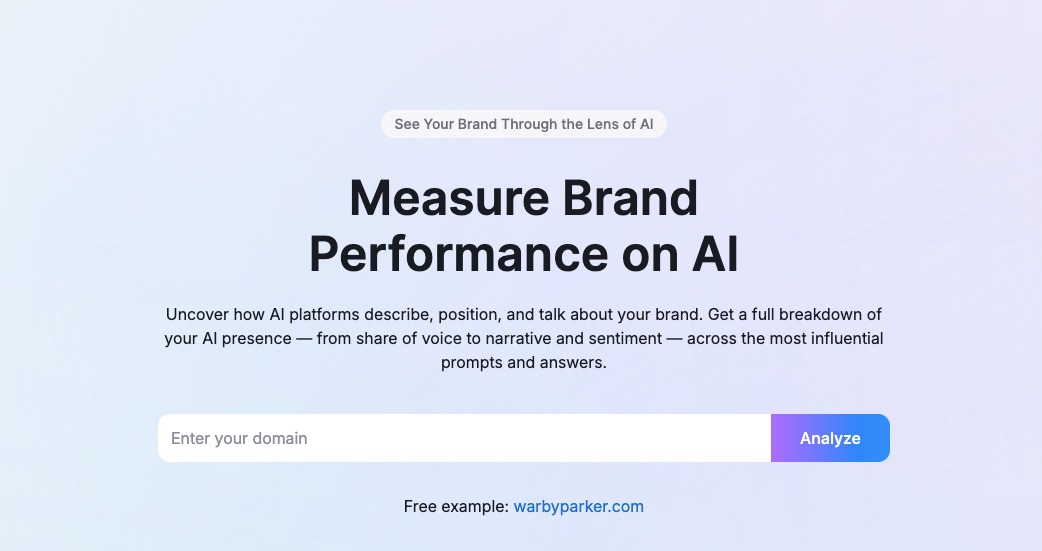
From here, you can explore your overall AI visibility and dig into detailed reports under the Brand Monitoring section:
- Brand Performance: Understand how AI platforms describe your brand.
- Visibility: Track your brand’s presence across AI platforms.
- Perception: See how your brand is framed compared to competitors.
- Citations: View the sources AI tools rely on when mentioning your brand.
- Questions: Discover the real questions users ask AI platforms.
Step 2: Go to the Questions Report
To discover new content ideas, navigate to the left-hand menu Questions.
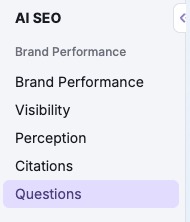
This report showcases the core themes that online users mention when talking about your brand and your niche.
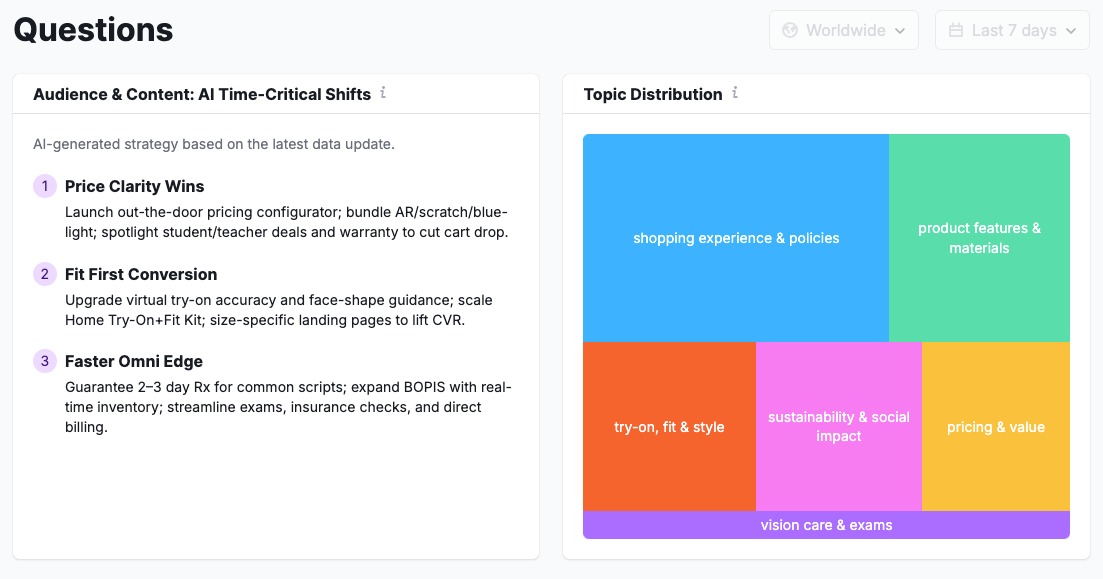
Step 3: Analyze User Queries & Intent
Next, scroll down to the Topic Analysis & Patterns section.
Here, you’ll find Query Topics, real user questions grouped by key themes relevant to your business or industry.
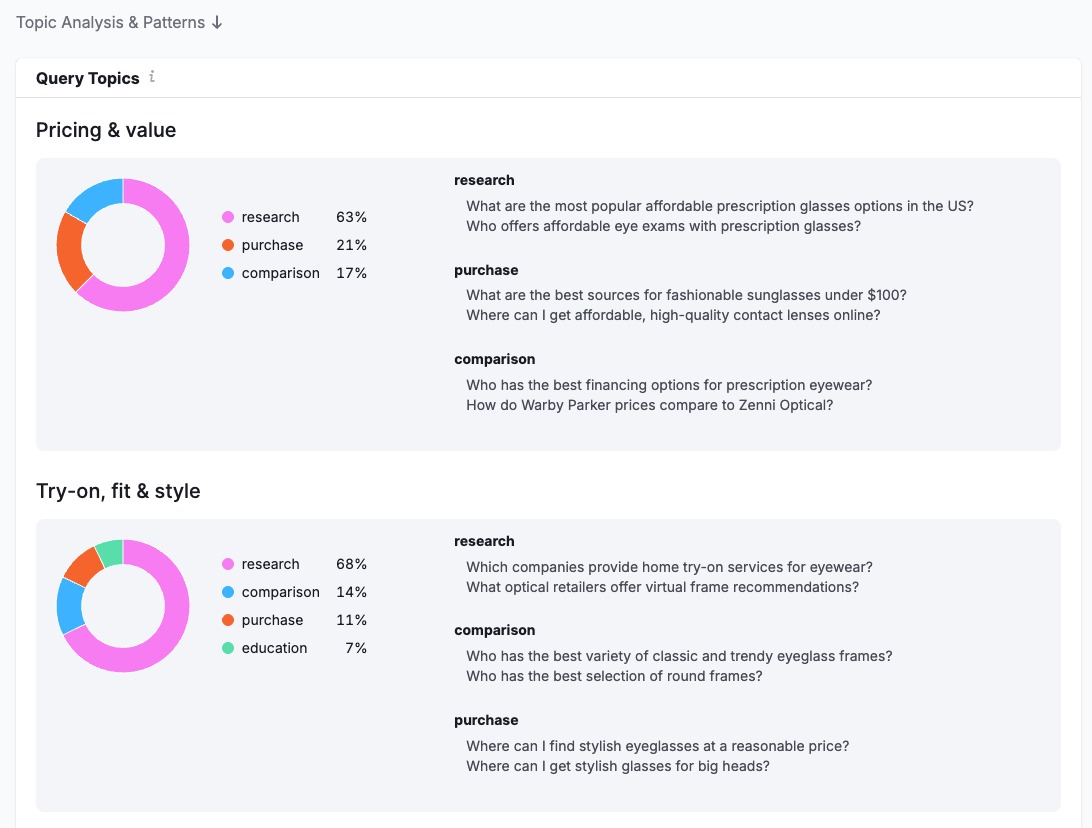
Under each theme, questions are further broken down by intent:
- Research (e.g., “What are the most popular affordable prescription glasses options in the US?”)
- Comparison (e.g., “How does Warby Parker’s customer service compare to Zenni Optical?”)
- Purchase: (e.g., “What are the best sources for fashionable sunglasses under $100?”)
Step 4: Turn These Insights Into Content Opportunities
Use these insights to find gaps in your existing content strategy.
Look for:
- Unanswered or under-covered questions, where your brand is missing entirely
- New trends or angles that are starting to show up in user queries
- Cross-comparison or how-to queries that suggest buyers are weighing options or looking for help to understand a topic
Then, create content to close these gaps. That could include:
- Blog posts targeting long-tail keywords
- Product comparison pages
- Product explainers and help center guides
- Videos explaining product workflows
- Landing pages
This approach can boost your online conversions and further increase your chances of showing up in AI responses.
Step 5: Prioritize Using AI Strategy Suggestions
At the bottom of the Questions report, you’ll find the AI Strategic Opportunities section.
This feature uses the latest LLM data to highlight the most impactful opportunities for your brand. 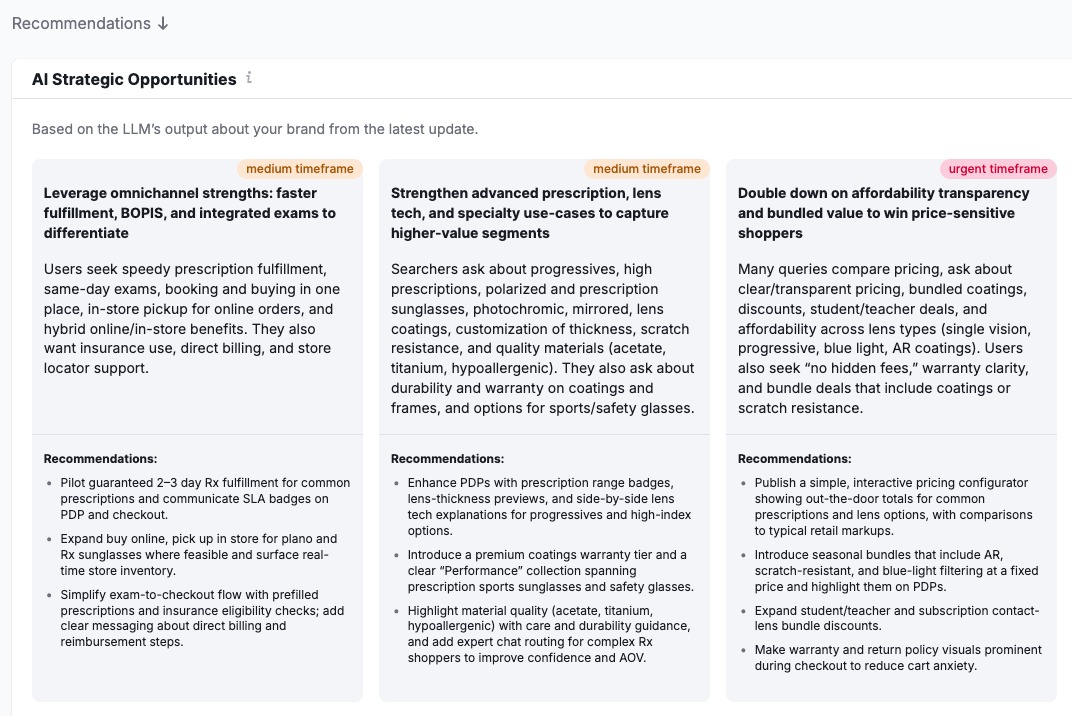
Each opportunity is grouped into a card with:
- A theme (e.g., affordability, advanced lens tech, fulfillment speed)
- Supporting user query patterns that explain why it matters
- Specific recommendations you can act on
Every recommendation is labeled by urgency (short, medium, or urgent timeframe) so you know what to prioritize first.
Use these insights to guide your content roadmap and focus on the opportunities most likely to increase visibility and relevance in AI answers.
Increase Your AI Visibility with the AI SEO Toolkit
If your brand isn’t showing up in AI responses, you’re missing a fast-growing audience.
Use the Questions report to uncover the real queries people ask AI platforms and the AI Strategic Opportunities section to see which actions will have the biggest impact.
Together, these insights help you identify high-intent content ideas, prioritize what to create next, and stay ahead of competitors in the AI search landscape.